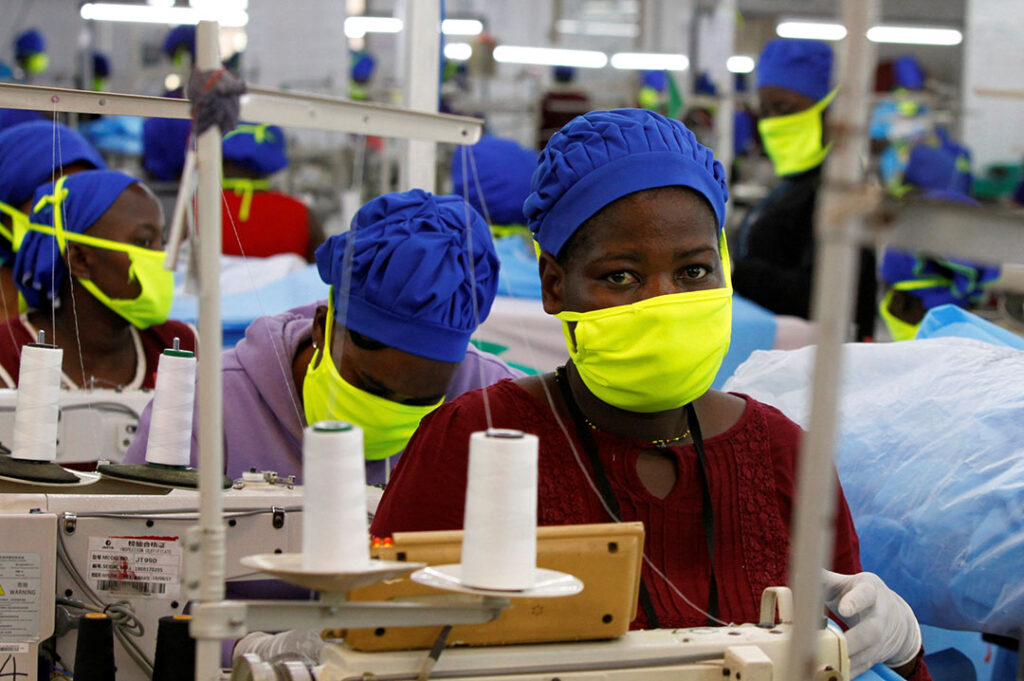ADF STAFF
Charity Ngilu, governor of Kitui County, Kenya, saw a dire need for surgical masks in her community and urged local businesses to produce the protective gear domestically, instead of relying on imports.
Before the coronavirus began to spread across the country, Kenya had little domestic capacity to manufacture medical supplies. That changed almost overnight, as two factories — Kitui County Textile Centre in Syongila and Rivatex East Africa in Eldoret — began producing surgical masks, which help stem the spread of COVID-19, the disease caused by the novel coronavirus.
The Kitui County Textile Centre now produces up to 30,000 masks a day and sells them to private and public hospitals across the country. The masks match industry standards for N95 respirators.
Georgina Musembi, the factory’s chief executive officer, said the facility that used to stitch uniforms for government officials has halted all other production to concentrate on masks, which are mandatory attire in certain public places in Kenya. Switching to a mask-making facility has allowed about 400 workers to keep their jobs.
“Our driving force is to ensure that we play a role in combating the spread of COVID-19 in the country and save lives,” Musembi told The Standard, one of Kenya’s largest newspapers. She added that mask orders were increasing daily and that there are plans to increase production to 100,000 or more masks a day.
Officials have said the country, which as of May 4 has had nearly 500 confirmed COVID-19 cases, 24 deaths and 167 recoveries, needs 15 million masks.
To meet demand, Musembi said the workers work day and night shifts, for eight hours each shift. Instead of going home after work, the workers retire to a vocational school on the same compound, where they sleep and eat. The accommodations limit interactions with people outside the factory.
Thomas Kipkurgat, managing director of Rivatex East Africa, said his factory produces 8,400 face masks per day. He said the factory hired additional staff members to work on a 24-hour production cycle.
Workers there told The People Daily, a Kenyan newspaper, that they were committed to helping spare other residents from the potentially deadly virus.
“We had to suspend making other items to support the country and contain the pandemic,” said Clare Nafula, a 40-year-old stitcher. “We need each other in these trying moments. The pandemic has taught us a lesson that every Kenyan has to play a role to contain it.”
Other Kenyan factories that have turned to manufacturing face masks include Bedi Investment Limited in Nakuru and Shona Textiles Processing Zone in Machakos County.
Cyrus Oguna, a government official who recently toured the Shona plant to assess the production of personal protective equipment, said masks are produced under guidelines from the Ministry of Health. He applauded the efforts of business leaders and factory workers, who have learned new skills during a tumultuous time.
“This has given us an opportunity to tap the potential that we never thought we had, and this potential has created employment opportunities to our people who otherwise would be jobless,” he told Kenya’s Capital News.

